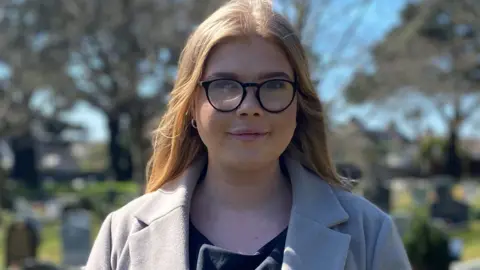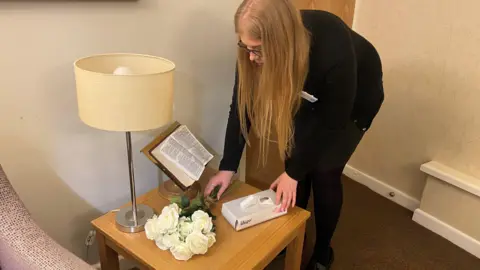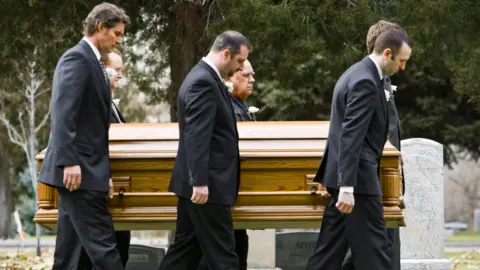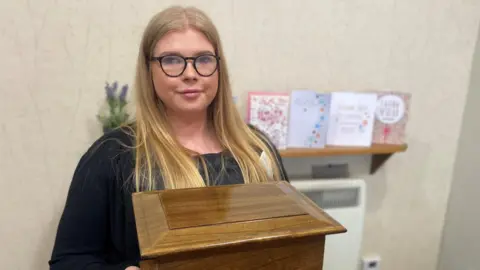Funeral worker breaks stereotypes of 'taboo' job
 BBC
BBCA woman who gave up working on a hospital trauma ward to work in a funeral home is hoping to inspire more young women to join the industry.
Becca Cook, 22, works as a funeral arranger in Dorchester, Dorset, and wants to challenge stereotypes about the job.
Just one in 10 people working in the UK funeral sector are under 30 years old, according to latest figures.
Ms Cook said she felt funerals were a "taboo subject" and not a field many consider.
'People ask about my age'
Most people working as undertakers, mortuary and crematorium assistants in the UK are generally older, with the majority aged between 55 and 59.
But Ms Cook said she wanted to show that younger people were capable of doing the role too.
"I've had people ask about my age, I say I'm 22 and they say, 'How long have you been in this industry for?'
"I like to prove myself so I can show them that actually I can do this job at my age."

Ms Cook chose to do work experience at a funeral directors' while studying health and social care at college.
"Everyone else was choosing to go to a care home or a hospital and I decided I wanted to do something a bit different," she said.
When the placement ended, Ms Cook pursued nursing at a hospital, working on trauma wards.
But realising she missed the one-to-one attention she was able to give mourning relatives, she decided to take a job at Co-op Funeralcare.
She now spends most days helping people organise music and flowers, and choose coffins and urns.
 Getty Images
Getty ImagesRecruiting young people has always been tough for the funeral industry.
Simon Helliar-Moore from the National Society of Allied and Independent Funeral Directors (SAIF) said it was because it took the "right kind of person" to do the job.
"It's not something that can necessarily be taught, there has to be a natural empathy in somebody," he said.
Younger funeral workers were often able to connect with people their own age who were grieving, he added.
"Sadly, from time-to-time, young people do unfortunately come into our care so having young people around just makes it a much more rounded experience," he continued.

Funeral director Dawn Cheeseman, who has been mentoring Ms Cook, said it had historically been a male-dominated industry.
"When I started in 1996 there were very few ladies in the profession," she said.
"It was quite difficult to get into the profession to start with and then be amongst older gentlemen."
Ms Cook said she found the job to be "different" and urged more young people to follow in her footsteps.
"I think the funeral industry is quite a taboo subject so it doesn't get spoken about and it's not a job that people would generally go for," she added.
You can follow BBC Dorset on Facebook, X (Twitter), or Instagram.
